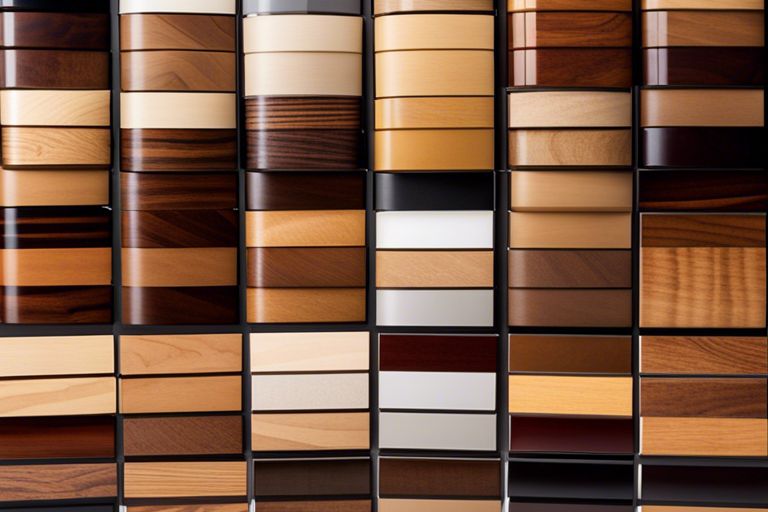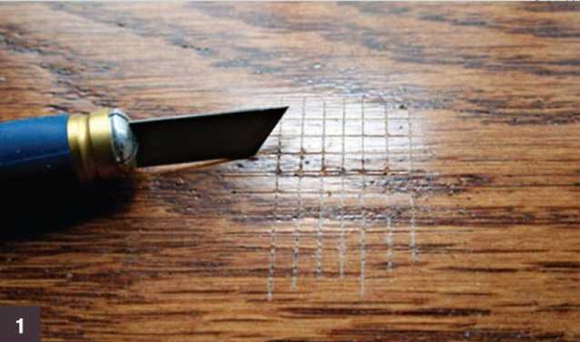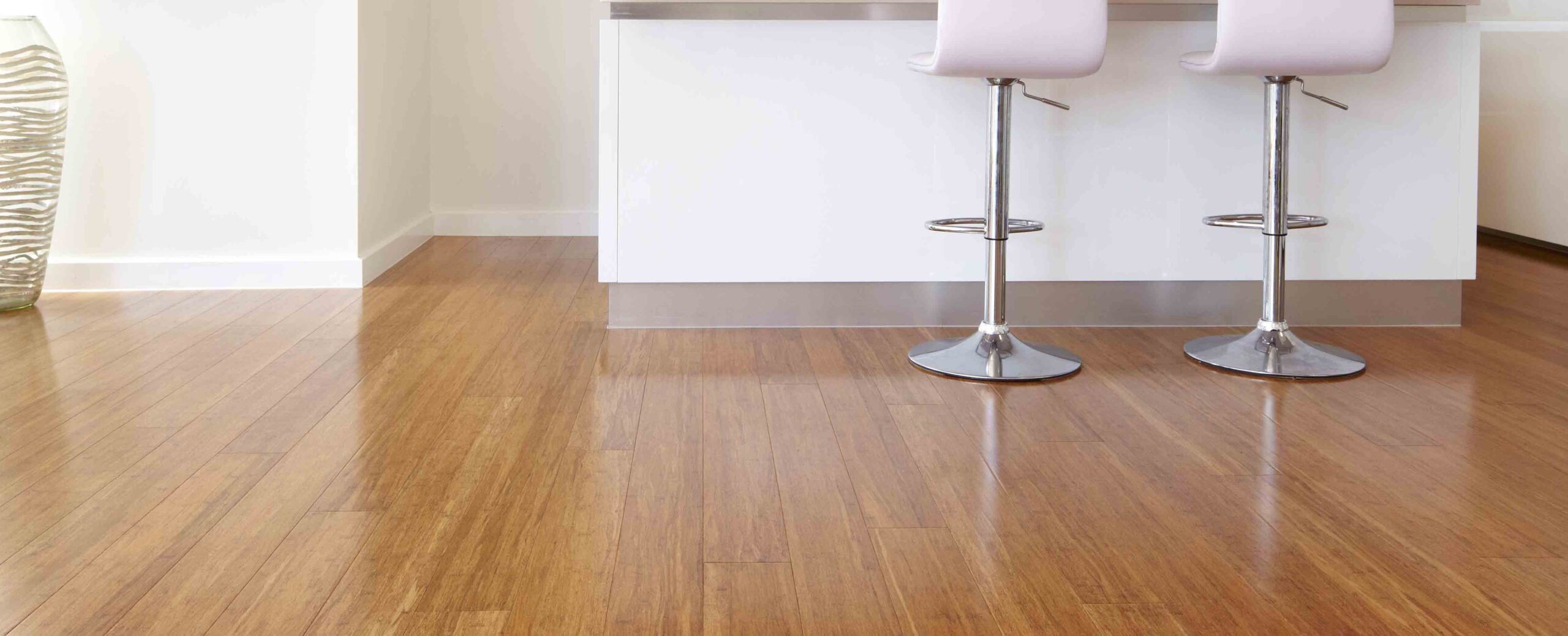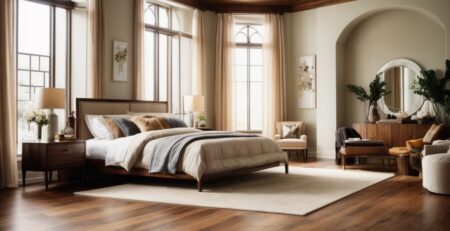Which hardwood flooring types are the most scratch-resistant?
Intro to the Hardwood Hustle
Why Hardwood Floors Be Fly
Any interior design enthusiast knows that hardwood floors are the epitome of sophistication and timeless elegance. The natural beauty of wood adds warmth and character to any space, making it a top choice for homeowners looking to elevate their home décor game.
The Lowdown on Scratch Resistance
The durability of hardwood floors can vary depending on the type of wood and finish used. The good news is, many hardwood flooring options are now engineered to be more scratch-resistant than ever before. This means you can enjoy the beauty of hardwood floors without constantly worrying about scratches from everyday wear and tear.
This is especially important for high-traffic areas in your home where scratches are more likely to occur. By choosing a scratch-resistant hardwood flooring option, you can ensure that your floors will look stunning for years to come.

The Real McCoy Woods
Janka Hardness Scale: What’s Poppin’
To understand hardwood flooring’s scratch resistance, one must look at the Janka Hardness Scale. This scale measures the hardness of different wood species by testing how much force is needed to embed a steel ball into the wood. The higher the Janka rating, the more scratch-resistant the wood tends to be. So, if you’re looking for durable hardwood flooring, pay attention to the Janka Hardness Scale!
Top Dawg Timbers That Don’t Play
If you want hardwood flooring that can withstand the wear and tear of daily life, consider top dawg timbers like Brazilian Cherry, Hickory, or Maple. These woods have high Janka ratings, making them more resistant to scratches and dents than softer woods like Pine or Douglas Fir. Plus, they add a touch of elegance to any space!
McCoy Woods are the real deal when it comes to scratch-resistant hardwood flooring. These top dawg timbers like Brazilian Cherry, Hickory, or Maple are ideal for high-traffic areas where durability is key. With their impressive Janka ratings, McCoy Woods not only stand the test of time but also add a touch of timeless beauty to your home. So, if you’re in the market for hardwood flooring that doesn’t play around when it comes to scratches, McCoy Woods are the way to go!

Dope Treatments & Finishes
The Seal Yo’ Fate: Polyurethane & More
For hardwood floors, one of the most popular treatments is polyurethane, which acts as a protective sealant against scratches, spills, and everyday wear and tear. Polyurethane comes in different finishes such as matte, satin, semi-gloss, and high-gloss, allowing you to choose the level of shine that fits your style and needs.
Buffed Up: How Finishing Levels Raise the Game
Levels refer to the degree of smoothness and shine on the hardwood floor after the finishing process. Higher finishing levels, such as satin and high-gloss, not only enhance the beauty of the wood but also provide added protection against scratches and stains. These levels can give your floor a luxurious look while increasing its durability.
Polyurethane acts as a shield for your hardwood floors, protecting them from scratches, water damage, and other daily wear. Its versatility allows you to choose the level of sheen that matches your style preferences while ensuring your floors remain scratch-resistant and beautiful for years to come.
Proper Props for Maintenance
Keeping It Clean: Sweeping Techniques
Many factors contribute to the scratch resistance of hardwood flooring, and proper maintenance is key in preserving its longevity. Regular sweeping is important to prevent dirt, debris, and other abrasive materials from causing scratches. Using a soft-bristled broom or a microfiber mop is gentle on the surface while effectively removing dust and particles.
The No-Scratch Lifestyle: Tips & Tricks
For a scratch-resistant hardwood floor, adopting a no-scratch lifestyle is crucial. Avoid wearing shoes indoors, especially high heels or shoes with sharp edges that can easily scratch the floor. Place felt pads on the legs of furniture to prevent them from causing scratches when moved. Additionally, consider using rugs or mats in high-traffic areas to protect the floor from wear and tear.
- Choose furniture with soft pads or wheels to prevent scratches from moving them.
- Regularly trim pets’ nails to reduce the risk of scratches on the floor.
- After all, prevention is key to maintaining scratch-resistant hardwood flooring.
Sweeping with a soft-bristled broom or a microfiber mop should be done regularly to remove dust and debris that can lead to scratches. Additionally, consider implementing a no-shoe policy indoors to prevent any sharp or abrasive materials from coming into contact with the floor. By being mindful of these simple habits, you can ensure that your hardwood flooring remains scratch-resistant for years to come.
Final Words
Presently, choosing a hardwood flooring type that is scratch-resistant is imperative for maintaining the beauty and longevity of your floors. From the options provided, engineered hardwood and solid hardwood with tough finishes like aluminum oxide are the most scratch-resistant choices available. When considering hardwood flooring, prioritize durability alongside aesthetics to ensure your floors remain in top condition for years to come. With proper care and maintenance, scratch-resistant hardwood flooring can withstand daily wear and tear, keeping your home looking stylish and inviting. So, take your time to explore the different options and select the best scratch-resistant hardwood flooring type that suits both your lifestyle and design preferences.
FAQ
Q: Which hardwood flooring types are the most scratch-resistant?
A: There are several hardwood flooring types known for their scratch-resistance. Some of the top options include Brazilian Walnut (also known as Ipe), Hickory, Maple, and White Oak. These hardwoods are dense and durable, making them more resistant to scratches and dents.
Q: How can I protect my hardwood floors from scratches?
A: To protect your hardwood floors from scratches, consider placing felt pads on the bottom of furniture legs to prevent them from scratching the surface. Additionally, avoid wearing high heels or shoes with sharp edges indoors, as they can leave marks on the floor. Regularly sweeping and cleaning your floors can also help prevent scratches from dirt and debris.
Q: Are there any finishes that can help make hardwood floors more scratch-resistant?
A: Yes, opting for a high-quality finish can significantly improve the scratch resistance of your hardwood floors. Aluminum oxide finishes are known for their durability and scratch-resistance. Water-based polyurethane finishes are also a popular choice as they create a hard protective layer on the surface of the wood, making it more resistant to scratches and wear.







